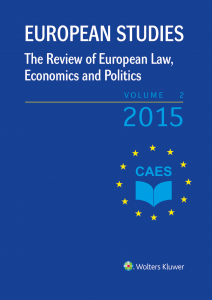Poland in the EU: How to Deal with Economic Crisis
Poland in the EU: How to Deal with Economic Crisis
Author(s): Jaroslaw KunderaSubject(s): Economy, Labor relations, Economic policy, EU-Accession / EU-DEvelopment
Published by: Univerzita Palackého v Olomouci
Keywords: integration processes; benefits of integration; economic crisis; free trade; foreign direct investment; mobility of labour; structural funds;
Summary/Abstract: After 2008 the EU has passed the deepest economic crisis since its inception. The crisis extends not only to the countries in the euro zone, but also affects the new Member States which joined the EU with a view to boost economic development. The main objectives of Polish integration with the EU like the other new member countries is economic growth and convergence with member states at higher level of development. The purpose of this study is to examine the main factors of convergence process during Polish participation in the EU. With analysis based on the theory of integration and empirical studies suggest that the impact of the integration of the Polish economy was essential and multi-sector. Effects of integrative formed not only under the influence of free trade and European single market with free movement of capital and workers, but also as a result of EU aid under the structural policies, namely, regional policy and agricultural policy. The benefits of the integration has prevailed economic costs, therefore, a total of Polish participation in the EU has brought an increase in economic growth of at least 0.5% of GDP per year to 1.75%. Integration marked the beginning of a process of catch-up better developed member countries, and the assistance from the structural funds had allowed the avoidance economic crisis.
Journal: European Studies - the Review of European Law, Economics and Politics
- Issue Year: 2/2015
- Issue No: 1
- Page Range: 142-170
- Page Count: 29
- Language: English

